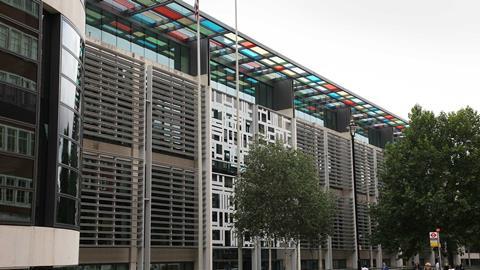The government cannot give notice of a decision to remove someone’s British citizenship by simply placing a copy of that notice on their Home Office file, the Court of Appeal has ruled by a majority.
A British-Pakistani woman said to have travelled to Syria to join so-called Islamic State, known only as D4, was unlawfully stripped of her British citizenship in 2019, the High Court ruled in July.
Mr Justice Chamberlain held that part of the British Nationality (General) Regulations 2003, as amended in 2018, was ultra vires.
Under the regulations, notice of a decision to remove citizenship is deemed to be given by placing the notice on the person’s file if their whereabouts are unknown, there is no address for correspondence and they are not legally represented.
Chamberlain J said that ‘as a matter of ordinary language, you do not “give” someone “notice” of something by putting the notice in your desk drawer and locking it’, ruling that both the regulations and the decision to remove D4’s citizenship under them were ‘void and of no effect’.
The Home Office appealed and argued that the purpose of the British Nationality Act 1981, which permits the home secretary to remove citizenship, could be frustrated. However, Lady Justice Whipple and Lord Justice Baker this week held that the regulations were ultra vires.
Whipple LJ said: ‘The 1981 Act does not confer powers of such breadth that the home secretary can deem notice to have been given where no step at all has been taken to communicate the notice to the person concerned and the order has simply been put on the person’s Home Office file.’
Baker LJ added: ‘There may be good policy reasons for empowering the secretary of state to deprive a person of citizenship without giving notice, but such a step is not lawful under this legislation.’
Sir Geoffrey Vos, the master of the rolls, said he ‘unfortunately’ disagreed, finding that the requirement to give notice is ‘part of the statutory mechanism for achieving the statutory purpose, not a purpose in itself’.
The Home Office was refused permission to appeal, but said it intends to apply directly to the Supreme Court.




























14 Readers' comments